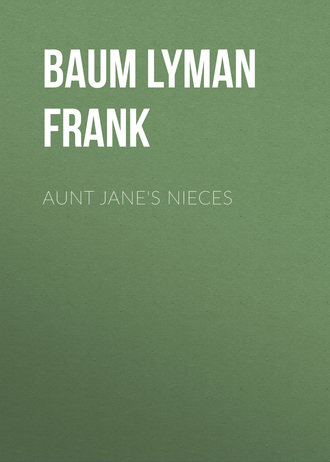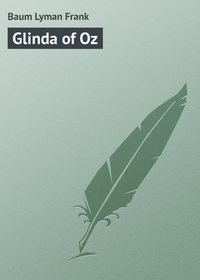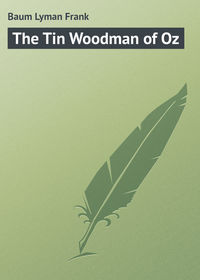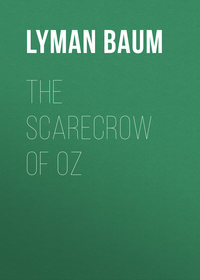 полная версия
полная версияAunt Jane's Nieces
Altogether, they were all better provided for than they had feared would be the case; so the little party spent a pleasant evening and separated early, Beth and Louise to go to their rooms and canvass quietly the events of the day, and the boy to take a long stroll through the country lanes to cool his bewildered brain. Patsy wrote a long letter to the major, telling him she would be home in three days, and then she went to bed and slept peacefully.
After breakfast they were all again summoned to the drawing-room, to their great surprise. Lawyer Watson and Uncle John were there, looking as grave as the important occasion demanded, and the former at once proceeded to relate the scene in James' room, his story of the death of Thomas Bradley, and the subsequent finding of the will.
"This will, which has just been recovered," continued the lawyer, impressively, "was made subsequent to the one under which Jane Merrick inherited, and therefore supercedes it. Miss Jane had, as you perceive, a perfect right to the use of the estate during her lifetime, but no right whatever to will a penny of it to anyone. Mr. Bradley having provided for that most fully. For this reason the will I read to you yesterday is of no effect, and Kenneth Forbes inherits from his uncle, through his mother, all of the estate."
Blank looks followed Mr. Watson's statement.
"Good-by to my five thousand," said Uncle John, with his chuckling laugh. "But I'm much obliged to Jane, nevertheless."
"Don't we get anything at all?" asked Beth, with quivering lip.
"No, my dear," answered the lawyer, gently. "Your aunt owned nothing to give you."
Patsy laughed. She felt wonderfully relieved.
"Wasn't I the grand lady, though, with all the fortune I never had?" she cried merrily. "But 'twas really fine to be rich for a day, and toss the money around as if I didn't have to dress ten heads of hair in ten hours to earn my bread and butter."
Louise smiled.
"It was all a great farce," she said. "I shall take the afternoon train to the city. What an old fraud our dear Aunt Jane was! And how foolish of me to return her hundred dollar check."
"I used mine," said Beth, bitterly. "It's all I'll ever get, it seems." And then the thought of the Professor and his debts overcame her and she burst, into tears.
The boy sat doubled within his chair, so overcome by the extraordinary fortune that had overtaken him that he could not speak, nor think even clearly as yet.
Patsy tried to comfort Beth.
"Never mind, dear," said she. "We're no worse off than before we came, are we? And we've had a nice vacation. Let's forget all disappointments and be grateful to Aunt Jane's memory. As far as she knew, she tried to be good to us."
"I'm going home today," said Beth, angrily drying her eyes.
"We'll all go home," said Patsy, cheerfully.
"For my part," remarked Uncle John, in a grave voice, "I have no home."
Patsy ran up and put her arm around his neck.
"Poor Uncle John!" she cried. "Why, you're worse off than any of us.
What's going to become of you, I wonder?"
"I'm wondering that myself," said the little man, meekly.
"Ah! You can stay here," said the boy, suddenly arousing from his apathy.
"No," replied Uncle John, "the Merricks are out of Elmhurst now, and it returns to its rightful owners. You owe me nothing, my lad."
"But I like you," said Kenneth, "and you're old and homeless. Stay at
Elmhurst, and you shall always be welcome."
Uncle John seemed greatly affected, and wrung the boy's hand earnestly. But he shook his head.
"I've wandered all my life," he said. "I can wander yet."
"See here," exclaimed Patsy. "We're all three your nieces, and we'll take care of you between us. Won't we, girls?"
Louise smiled rather scornfully, and Beth scowled.
"My mother and I live so simply in our little flat," said one, "that we really haven't extra room to keep a cat. But we shall be glad to assist Uncle John as far as we are able."
"Father can hardly support his own family," said the other; "but I will talk to my mother about Uncle John when I get home, and see what she says."
"Oh, you don't need to, indeed!" cried Patsy, in great indignation. "Uncle John is my dear mother's brother, and he's to come and live with the Major and me, as long as he cares to. There's room and to spare, Uncle," turning to him and clasping his hand, "and a joyful welcome into the bargain. No, no! say nothing at all, sir! Come you shall, if I have to drag you; and if you act naughty I'll send for the Major to punish you!"
Uncle John's eyes were moist. He looked on Patsy most affectionately and cast a wink at Lawyer Watson, who stood silently by.
"Thank you, my dear," said he; "but where's the money to come from?"
"Money? Bah!" she said. "Doesn't the Major earn a heap with his bookkeeping, and haven't I had a raise lately? Why, we'll be as snug and contented as pigs in clover. Can you get ready to come with me today, Uncle John?"
"Yes," he said slowly. "I'll be ready, Patsy."
So the exodus from Elmhurst took place that very day, and Beth travelled in one direction, while Louise, Patsy and Uncle John took the train for New York. Louise had a seat in the parlor car, but Patsy laughed at such extravagance.
"It's so much easier than walking," she said to Uncle John, "that the common car is good enough," and the old man readily agreed with her.
Kenneth and Mr. Watson came to the station to see them off, and they parted with many mutual expressions of friendship and good will. Louise, especially, pressed an urgent invitation upon the new master of Elmhurst to visit her mother in New York, and he said he hoped to see all the girls again. They were really like cousins to him, by this time. And after they were all gone he rode home on Nora's back quite disconsolate, in spite of his wonderful fortune.
The lawyer, who had consented to stay at the mansion for a time, that the boy might not be lonely, had already mapped put a plan for the young heir's advancement. As he rode beside Kenneth he said:
"You ought to travel, and visit the art centers of Europe, and I shall try to find a competent tutor to go with you."
"Can't you go yourself?" asked the boy.
The lawyer hesitated.
"I'm getting old, and my clients are few and unimportant, aside from the Elmhurst interests," he said. "Perhaps I can manage to go abroad with you."
"I'd like that," declared the boy. "And we'd stop in New York, wouldn't we, for a time?"
"Of course. Do you want to visit New York especially?"
"Yes."
"It's rather a stupid city," said the lawyer, doubtfully.
"That may be," answered the boy. "But Patsy will be there, you know."
CHAPTER XXIV.
HOME AGAIN
The Major was at the station to meet them. Uncle John had shyly suggested a telegram, and Patsy had decided they could stand the expense for the pleasure of seeing the old Dad an hour sooner.
The girl caught sight of him outside the gates, his face red and beaming as a poppy in bloom and his snowy moustache bristling with eagerness. At once she dropped her bundles and flew to the Major's arms, leaving the little man in her wake to rescue her belongings and follow after.
He could hardly see Patsy at all, the Major wrapped her in such an ample embrace; but bye and bye she escaped to get her breath, and then her eyes fell upon the meek form holding her bundles.
"Oh, Dad," she cried, "here's Uncle John, who has come to live with us; and if you don't love him as much as I do I'll make your life miserable!"
"On which account," said the Major, grasping the little man's hand most cordially, "I'll love Uncle John like my own brother. And surely," he added, his voice falling tenderly, "my dear Violet's brother must be my own. Welcome, sir, now and always, to our little home. It's modest, sir; but wherever Patsy is the sun is sure to shine."
"I can believe that," said Uncle John, with a nod and smile.
They boarded a car for the long ride up town, and as soon as they were seated Patsy demanded the story of the Major's adventures with his colonel, and the old fellow rattled away with the eagerness of a boy, telling every detail in the most whimsical manner, and finding something humorous in every incident.
"Oh, but it was grand, Patsy!" he exclaimed, "and the Colonel wept on my neck when we parted and stained the collar of me best coat, and he give me a bottle of whiskey that would make a teetotaler roll his eyes in ecstacy. 'Twas the time of my life."
"And you're a dozen years younger, Major!" she cried, laughing, "and fit to dig into work like a pig in clover."
His face grew grave.
"But how about the money, Patsy dear?" he asked. "Did you get nothing out of Jane Merrick's estate?"
"Not a nickle, Dad. 'Twas the best joke you ever knew. I fought with Aunt Jane like a pirate and it quite won her heart. When she died she left me all she had in the world."
"Look at that, now!" said the Major, wonderingly.
"Which turned out to be nothing at all," continued Patsy. "For another will was found, made by Mr. Thomas Bradley, which gave the money to his own nephew after Aunt Jane died. Did you ever?"
"Wonderful!" said the Major, with a sigh.
"So I was rich for half a day, and then poor as ever."
"It didn't hurt you, did it?" asked the Major. "You weren't vexed with disappointment, were you, Patsy?"
"Not at all, Daddy."
"Then don't mind it, child. Like as not the money would be the ruination of us all. Eh, sir?" appealing to Uncle John.
"To be sure," said the little man. "Jane left five thousand to me, also, which I didn't get. But I'm not sorry at all."
"Quite right, sir," approved the Major, sympathetically, "although it's easier not to expect anything at all, than to set your heart on a thing and then not get it. In your case, it won't matter. Our house is yours, and there's plenty and to spare."
"Thank you," said Uncle John, his face grave but his eyes merry.
"Oh, Major!" cried Patsy, suddenly. "There's Danny Reeves's restaurant. Let's get off and have our dinner now; I'm as hungry as a bear."
So they stopped the car and descended, lugging all the parcels into the little restaurant, where they were piled into a chair while the proprietor and the waiters all gathered around Patsy to welcome her home.
My, how her eyes sparkled! She fairly danced for joy, and ordered the dinner with reckless disregard of the bill.
"Ah, but it's good to be back," said the little Bohemian, gleefully. "The big house at Elmhurst was grand and stately, Major, but there wasn't an ounce of love in the cupboard."
"Wasn't I there. Patsy?" asked Uncle John, reproachfully.
"True, but now you're here; and our love, Uncle, has nothing to do with Elmhurst. I'll bet a penny you liked it as little as I did."
"You'd win," admitted the little man.
"And now," said the girl to the smiling waiter, "a bottle of red
California wine for Uncle John and the Major, and two real cigars.
We'll be merry tonight if it bankrupts the Doyle family entirely."
But, after a merry meal and a good one, there was no bill at all when it was called for.
Danny Reeves himself came instead, and made a nice little speech, saying that Patsy had always brought good luck to the place, and this dinner was his treat to welcome her home.
So the Major thanked him with gracious dignity and Patsy kissed Danny on his right cheek, and then they went away happy and content to find the little rooms up the second flight of the old tenement.
"It's no palace," said Patsy, entering to throw down the bundles as soon as the Major unlocked the door, "but there's a cricket in the hearth, and it's your home, Uncle John, as well as ours."
Uncle John looked around curiously. The place was so plain after the comparative luxury of Elmhurst, and especially of the rose chamber Patsy had occupied, that the old man could not fail to marvel at the girl's ecstatic joy to find herself in the old tenement again. There was one good sized living-room, with an ancient rag-carpet partially covering the floor, a sheet-iron stove, a sofa, a table and three or four old-fashioned chairs that had probably come from a second-hand dealer.
Opening from this were two closet-like rooms containing each a bed and a chair, with a wash-basin on a bracket shelf. On the wails were a few colored prints from the Sunday newspapers and one large and fine photograph of a grizzled old soldier that Uncle John at once decided must represent "the Colonel."
Having noted these details, Patsy's uncle smoothed back his stubby gray hair with a reflective and half puzzled gesture.
"It's cozy enough, my child; and I thank you for my welcome," said he. "But may I enquire where on earth you expect to stow me in this rather limited establishment?"
"Where? Have you no eyes, then?" she asked, in astonishment. "It's the finest sofa in the world, Uncle John, and you'll sleep there like a top, with the dear Colonel's own picture looking down at you to keep you safe and give you happy dreams. Where, indeed!"
"Ah; I see," said Uncle John.
"And you can wash in my chamber," added the Major, with a grand air, "and hang your clothes on the spare hooks behind my door."
"I haven't many," said Uncle John, looking thoughtfully at his red bundle.
The Major coughed and turned the lamp a little higher.
"You'll find the air fine, and the neighborhood respectable," he said, to turn the subject. "Our modest apartments are cool in summer and warm in winter, and remarkably reasonable in price. Patsy gets our breakfast on the stove yonder, and we buy our lunches down town, where we work, and then dine at Danny Reeves's place. A model home, sir, and a happy one, as I hope you'll find it."
"I'm sure to be happy here," said Uncle John, taking out his pipe.
"May I smoke?"
"Of course; but don't spoil the lace curtains, dear," answered Patsy, mischievously. And then, turning to her father, she exclaimed: "Oh, daddy! What will the Uncle do all the day while we're at work?"
"That's as he may choose," said the Major, courteously.
"Couldn't we get him a job?" asked Patsy, wistfully. "Not where there'll be much work, you know, for the Uncle is old. But just to keep him out of mischief, and busy. He can't hang around all day and be happy, I suppose."
"I'll look around," answered the Major, briskly, as if such a "job" was the easiest thing in the world to procure. "And meantime – "
"Meantime," said Uncle John, smiling at them, "I'll look around myself."
"To be sure," agreed the Major. "Between the two of us and Patsy, we ought to have no trouble at all."
There was a moment of thoughtful silence after this, and then Patsy said:
"You know it won't matter, Uncle John, if you don't work. There'll easy be enough for all, with the Major's wages and my own."
"By the bye," added the Major, "if you have any money about you, which is just possible, sir, of course, you'd better turn it over to Patsy to keep, and let her make you an allowance. That's the way I do – it's very satisfactory."
"The Major's extravagant," exclaimed Patsy; "and if he has money he wants to treat every man he meets."
Uncle John shook his head, reproachfully, at the Major.
"A very bad habit, sir," he said.
"I acknowledge it, Mr. Merrick," responded the Major. "But Patsy is fast curing me. And, after all, it's a wicked city to be carrying a fat pocketbook around in, as I've often observed."
"My pocketbook is not exactly fat," remarked Uncle John.
"But you've money, sir, for I marked you squandering it on the train," said Patsy, severely. "So out with it, and we'll count up, and see how much of an allowance I can make you 'till you get the job."
Uncle John laughed and drew his chair up to the table. Then he emptied his trousers' pockets upon the cloth, and Patsy gravely separated the keys and jackknife from the coins and proceeded to count the money.
"Seven dollars and forty-two cents," she announced. "Any more?"
Uncle John hesitated a moment, and then drew from an inner pocket of his coat a thin wallet. From this, when she had received it from his hand, the girl abstracted two ten and one five dollar bills, all crisp and new.
"Good gracious!" she cried, delightedly. "All this wealth, and you pleading poverty?"
"I never said I was a pauper," returned Uncle John, complacently.
"You couldn't, and be truthful, sir," declared the girl. "Why, this will last for ages, and I'll put it away safe and be liberal with your allowance. Let me see," pushing the coins about with her slender fingers, "you just keep the forty-two cents, Uncle John. It'll do for car-fare and a bit of lunch now and then, and when you get broke you can come to me."
"He smokes," observed the Major, significantly.
"Bah! a pipe," said Patsy. "And Bull Durham is only five cents a bag, and a bag ought to last a week. And every Saturday night, sir, you shall have a cigar after dinner, with the Major. It's it our regular practice."
"Thank you, Patsy," said Uncle John, meekly, and gathered up his forty-two cents.
"You've now a home, and a manager, sir, with money in the bank of Patsy & Company, Limited," announced the Major. "You ought to be very contented, sir."
"I am," replied Uncle John.
CHAPTER XXV
UNCLE JOHN ACTS QUEERLY
When Patsy and the Major had both departed for work on Monday morning Uncle John boarded a car and rode downtown also. He might have accompanied them part of the way, but feared Patsey might think him extravagant if she found him so soon breaking into the working fund of forty-two cents, which she charged him to be careful of.
He seemed to be in no hurry, for it was early yet, and few of the lower Broadway establishments were open. To pass the time he turned into a small restaurant and had coffee and a plate of cakes, in spite of the fact that Patsy had so recently prepared coffee over the sheet-iron stove and brought some hot buns from a near-by bakery. He was not especially hungry; but in sipping the coffee and nibbling the cakes he passed the best part of an hour.
He smiled when he paid out twenty-five cents of his slender store for the refreshment. With five cents for car-fare he had now but twelve cents left of the forty-two Patsy had given him! Talk about the Major's extravagance: it could not be compared to Uncle John's.
Another hour was spent in looking in at the shop windows. Then, suddenly noting the time. Uncle John started down the street at a swinging pace, and presently paused before a building upon which was a sign, reading: "Isham, Marvin & Co., Bankers and Brokers." A prosperous looking place, it seemed, with a host of clerks busily working in the various departments. Uncle John walked in, although the uniformed official at the door eyed him suspiciously.
"Mr. Marvin in?" he inquired, pleasantly.
"Not arrived yet," said the official, who wore a big star upon his breast.
"I'll wait," announced Uncle John, and sat down upon a leather-covered bench.
The official strutted up and down, watching the customers who entered the bank or departed, and keeping a sharp watch on the little man upon the bench.
Another hour passed.
Presently Uncle John jumped up and approached the official.
"Hasn't Mr. Marvin arrived yet?" he enquired, sharply.
"An hour ago," was the reply.
"Then why didn't you let me know? I want to see him."
"He's busy mornings. Has to look over the mail. He can't see you yet."
"Well, he will see me, and right away. Tell him John Merrick is here."
"Your card, sir."
"I haven't any. My name will do."
The official hesitated, and glanced at the little man's seedy garb and countryfied air. But something in the angry glance of the shrewd eye made him fear he had made a mistake. He opened a small door and disappeared.
In a moment the door burst open to allow egress to a big, red-bearded man in his shirtsleeves, who glanced around briefly and then rushed at Uncle John and shook both his hands cordially.
"My dear Mr. Merrick!" he exclaimed, "I'm delighted and honored to see you here. Come to my room at once. A great surprise and pleasure, sir! Thomas, I'm engaged!"
This last was directed at the head of the amazed porter, who, as the door slammed in his face, nodded solemnly and remarked:
"Fooled ag'in, and I might 'a' known it. Drat these 'ere billionaires!
Why don't they dress like decent people?"
Uncle John had been advised by Patsy where to go for a good cheap luncheon; but he did not heed her admonition. Instead, he rode in a carriage beside the banker to a splendid club, where he was served with the finest dishes the chef could provide on short notice. Moreover, Mr. Marvin introduced him to several substantial gentlemen as "Mr. John Merrick, of Portland"; and each one bowed profoundly and declared he was "highly honored."
Yet Uncle John seemed in no way elated by this reception. He retained his simple manner, although his face was more grave than Patsy had often seen it; and he talked with easy familiarity of preferred stocks and amalgamated interests and invested, securities and many other queer things that the banker seemed to understand fully and to listen to with respectful deference.
Then they returned to the bank for another long session together, and there was quite an eager bustle among the clerks as they stretched their necks to get a glimpse of Mr. Marvin's companion.
"It's John Merrick" passed from mouth to mouth, and the uniformed official strutted from one window to another, saying:
"I showed him in myself. And he came into the bank as quiet like as anyone else would."
But he didn't go away quietly, you may be sure. Mr. Marvin and Mr. Isham both escorted their famous client to the door, where the Marvin carriage had been ordered to be in readiness for Mr. Merrick's service.
But Uncle John waived it aside disdainfully.
"I'll walk," he said. "There are some other errands to attend to."
So they shook his hand and reminded him of a future appointment and let him go his way. In a moment the great Broadway crowd had swallowed up John Merrick, and five minutes later he was thoughtfully gazing into a shop window again.
By and bye he bethought himself of the time, and took a cab uptown. He had more than the twelve cents in his pocket, now, besides the check book which was carefully hidden away in an inside pocket; so the cost of the cab did not worry him. He dismissed the vehicle near an uptown corner and started to walk hastily toward Danny Reeves's restaurant, a block away, Patsy was standing in the doorway, anxiously watching for him.
"Oh, Uncle John," she cried, as he strolled "I've been really worried about you; it's such a big city, and you a stranger. Do you know you're ten minutes late?"
"I'm sorry," he said, humbly; "but it's a long way here from downtown."
"Didn't you take a car?"
"No, my dear."
"Why, you foolish old Uncle! Come in at once. The Major has been terribly excited over you, and swore you should not be allowed to wander through the streets without someone to look after you. But what could we do?"
"I'm all right," declared Uncle John, cordially shaking hands with
Patsy's father. "Have you had a good day?"
"Fine," said the Major. "They'd missed me at the office, and were glad to have me back. And what do you think? I've got a raise."
"Really?" said Uncle John, seeing it was expected of him.
"For a fact. It's Patsy's doing, I've no doubt. She wheedled the firm into giving me a vacation, and now they're to pay me twelve a week instead of ten."
"Is that enough?" asked Uncle John, doubtfully.
"More than enough, sir. I'm getting old, and can't earn as much as a younger man. But I'm pretty tough, and mean to hold onto that twelve a week as long as possible."
"What pay do you get, Patsy?" asked Uncle John.
"Almost as much as Daddy. We're dreadfully rich, Uncle John; so you needn't worry if you don't strike a job yourself all at once."
"Any luck today, sir," asked the Major, tucking a napkin under his chin and beginning on the soup.
Uncle John shook his head.
"Of course not," said Patsy, quickly. "It's too early, as yet. Don't hurry, Uncle John. Except that it'll keep you busy, there's no need for you to work at all."









